The Christie, based in Manchester, in the United Kingdom (UK), is recognised as one the UK’s very best specialist hospitals. It is the largest single site cancer centre in Europe and one of the world’s most technologically advanced centres of oncological research. The Christie serves a population of 3.2 million people across Greater Manchester and Cheshire, with over one quarter (26%) of its patients referred from other areas of the UK. It is one of the best hospitals for providing opportunities for patients to take part in clinical research studies.
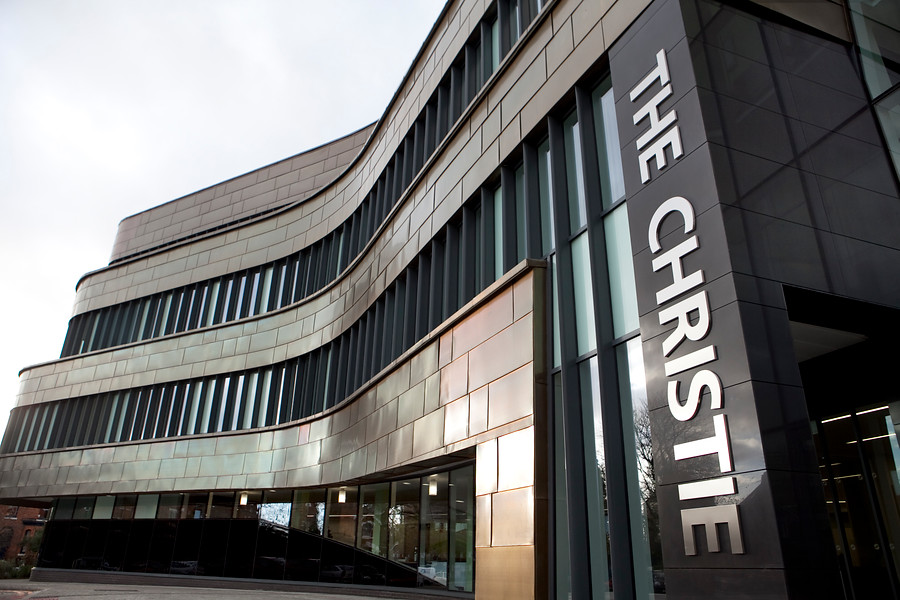
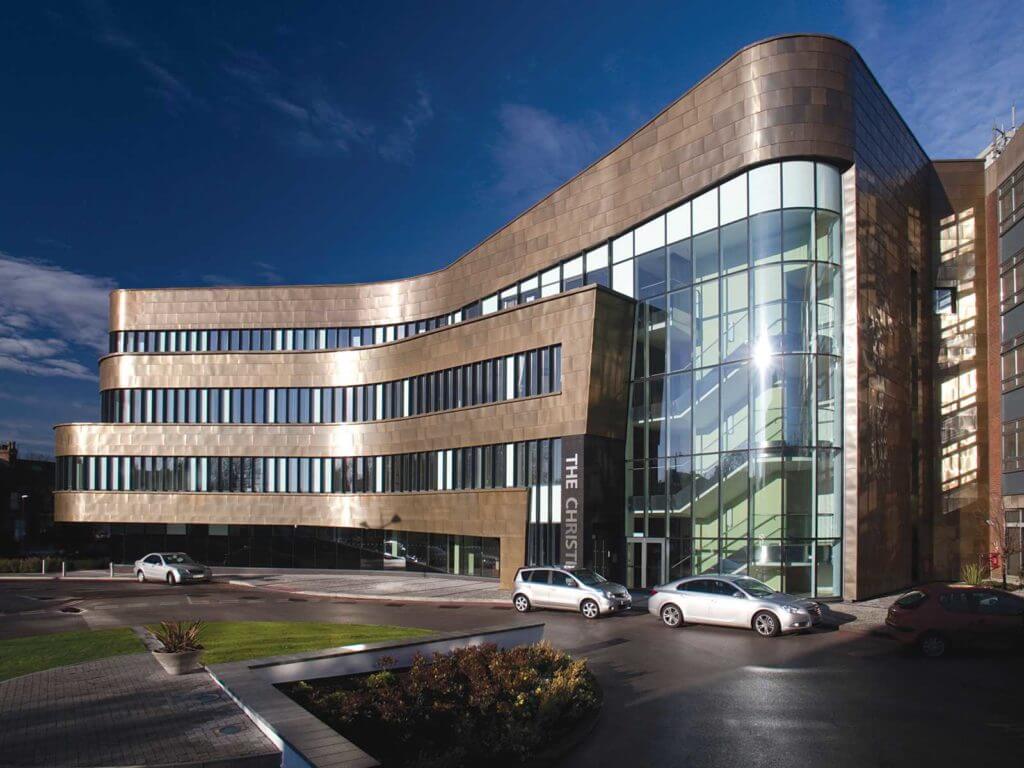
In the clinical research pipeline, blood and tissue samples are taken from participating patients and then processed and stored at preanalytical clinical research laboratories before being shipped off for analysis. The UK’s National Institute for Health and Care Research (NIHR) Manchester Clinical Research Facility (CRF) at The Christie, is one of five clinical research laboratories that serve the Manchester Cancer Research Centre (MCRC), which works together with The University of Manchester and Cancer Research UK. Andrew Bennie is the CRF Lab Manager at The Christie.
“The CRF lab that I run is one of five connected labs. We are in charge of processing all the blood samples that are taken as part of clinical trials at the drug companies’ request,” he said. “We receive them, process them, ship them, and track the whole process as well. We deal with everything from the sample leaving the patient to arrival at the analysis lab.”
“Most hospitals that have clinical trials departments will have a similar type of laboratory, but CRF labs aren’t well known in general,” he added. “As a Clinical Research Facility, we punch well above our weight in terms of the number of trials that we have open and samples that we process, we support approximately 250 open trials a year and process 1,500 to 2,000 samples in the lab each month.“
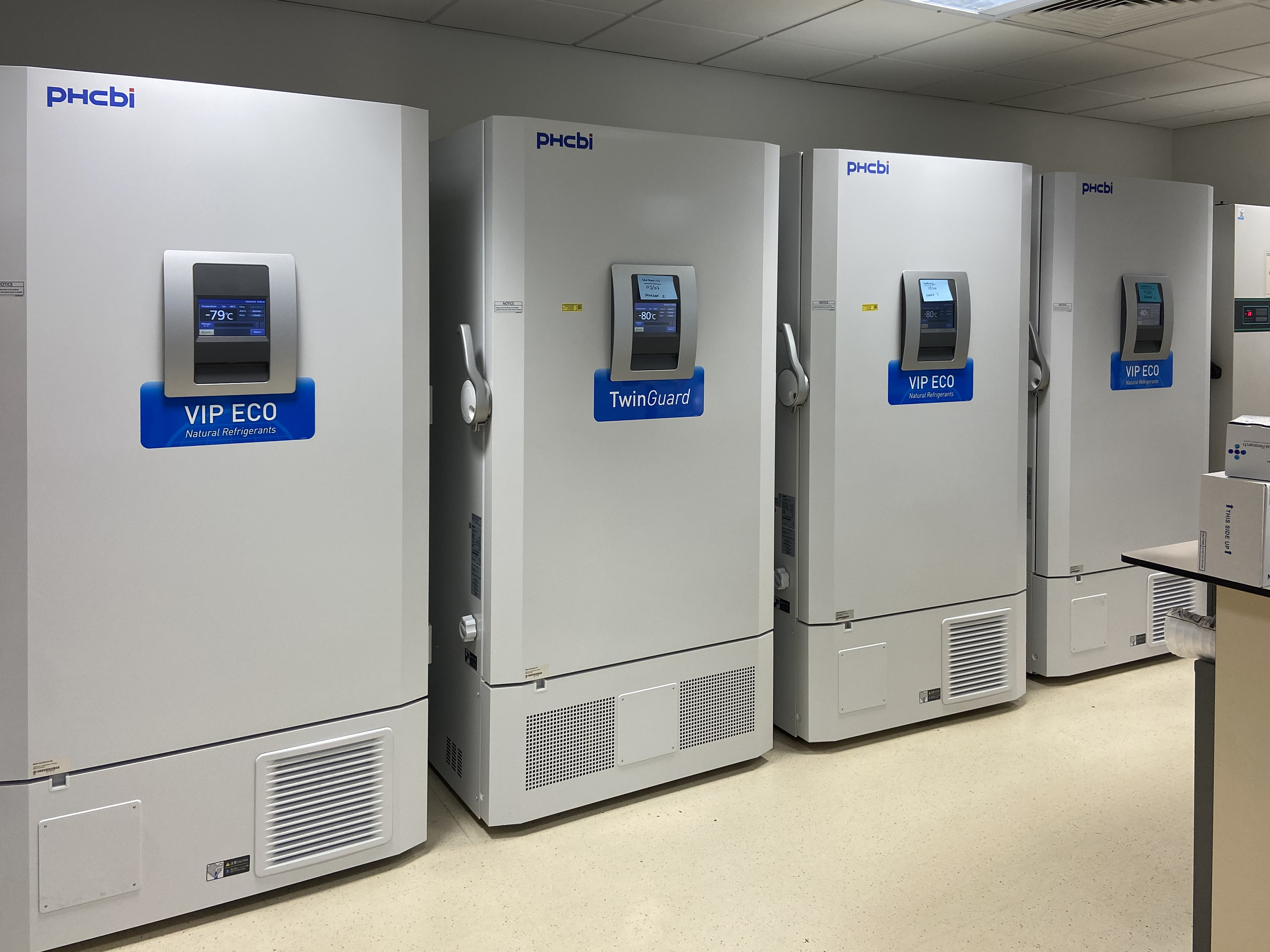
Supporting promising new clinical research
One new area emerging in cancer research is the development of cancer vaccines. In May 2024, it was announced that thousands of cancer patients in the UK will have fast-tracked access to trials of personalised cancer vaccines following the launch of a world-leading NHS trial ‘matchmaking’ service to help find new life-saving treatments.
Through the UK’s NHS (National Health Service) Cancer Vaccine Launch Pad (CVLP) people with cancer who are receiving treatment in the NHS can be assessed to see if they might be eligible to join a cancer vaccine clinical trial, and then referred to a hospital that is running a trial. The Christie is one of the hospitals involved in the trials.
Cancer vaccines under investigation are based on messenger ribonucleic acid (mRNA) and leverage the technology used for some COVID-19 vaccines. They are created by analysing a patient’s tumour to identify mutations specific to their own cancer. Using this information, medics then create an experimental individualised cancer vaccine.
“The Christie is an important player in the UK’s cancer research arena. It is a part of the Manchester Cancer Research Centre (MCRC) and works together with The University of Manchester and Cancer Research UK. We are also one of the partners in the Manchester Academic Health Science Research Centre,” explained Andrew. “The cancer vaccine trials are a recent development in cancer research that we are a part of, and we are expecting to take on quite a lot more work with these.”
Cancer vaccines – A promising new area of clinical research
The biotechnology that helped tackle the COVID-19 pandemic has been used in developing potential new solutions in the fight against cancer.
Early trials of cancer vaccines that utilise messenger ribonucleic acid (mRNA) look promising. The developmental vaccines are designed to induce an immune response that may prevent cancer from returning after surgery on the primary tumour by stimulating the patient’s immune system to specifically recognise and potentially destroy any remaining cancer cells, thus, preventing the spread of cancer.
The cancer vaccines are based on mRNA – the same technology used for the Pfizer-BioNTech COVID-19 vaccine – and are created by analysing a patient’s tumour to identify mutations specific to their own cancer. Using this information, medics then create an experimental individualised cancer vaccine.
/
Cancer vaccines for colorectal cancer and malignant melanoma (skin cancer) are being jointly developed in collaboration with biopharmaceutical companies BioNTech and Genentech, a member of the Roche Group. They are still undergoing trials and have not yet been approved by regulators.
Inside the lab
Preanalytical labs, like The Manchester CRF at The Christie, utilise a range of equipment including -80°C freezers, centrifuges, and safety cabinets to test samples in.
“All our lab equipment must provide reliability, but also flexibility,” said Andrew. “Trials are really changeable, and our workload is really changeable. One year we might have a lot of samples from a certain trial that might require certain storage, but when that trial closes, it could be replaced with other trials that have completely different storage needs. For example, while for one trial, we could require a lot of space for boxes, another might need spaces for bags. It’s really important that we can change things around quite quickly.”
“Equipment needs to offer good performance in the lab too. It needs to be eco-friendly, use a lot less power, perform quietly, and be easy to maintain,” he continued. “These things make our working life easier.”
Andrew describes how technicians work at benches in the lab with equipment and other either side of them and how this shapes requirements.
“Our staff work with at least one centrifuge and other equipment either side of them, so anything that produces loud noise obviously does not help in creating a good working environment. When the compressors are running on some freezers the noise can be significant,” he said. “They can also burn a lot of power and throw out a lot of heat that can make the lab quite uncomfortable to work in. In general, everything needs to be easy to work with, and work around.”
”Equipment needs to offer good performance in the lab too. It needs to be eco-friendly, use a lot less power, perform quietly, and be easy to maintain.”
“We also like machines that look ‘cool’,” he added. “While we must maintain a sensible budget, you want your lab to look good, especially when you’re presenting to others, such as external drug companies, auditors, and the public. It’s our working environment, it has a big impact on us, even in terms of efficiency and morale, and it has a big impact on visitors.”

Continual performance
The lab runs day and night and is in continual use. The requirements of the many different trials that the lab covers mean that adaptability is key.
“For each different trial that we are active with, we have a different protocol - a different set of instructions that we have to follow. For example, protocols might require a sample to be processed within 10 minutes, within 30 minutes, or within an hour. We need enough equipment to accommodate this across our overall remit. This can be a massive issue when it comes to trials and how it can ‘bottleneck’ workflow. And bottlenecks lead to deviations. And deviations lead to trials not getting the right data,” Andrew explained. “Back in 2018, when I first started at the Manchester CRF at The Christie, the predecessors to our PHC equipment included a lot of older machines that were at risk of breaking down. If equipment did break down, we were limited by how quickly the engineers could come out and service things. And some of our machines were so old that they weren't being made anymore. So when repair was required, it involved salvaging parts etc. In addition, at the time, we went from a fleet of six centrifuges down to two or three some days. Our work was at risk of compromise. Reliability is something that you can't train or predict, and it is the ‘killer’ really.”
An effective solution
Andrew has visited the UK’s CRF Conference every year that it has been held since he started as Lab Manager at Manchester’s CRF at The Christie.
“PHC Europe always have a presence at the conference, and they are always someone that I speak to when I attend. I specifically wanted to keep up to date with PHC’s product development because I have known for a while that our old freezers needed replacing,” said Andrew. “Then, one of our old freezers died very suddenly. It was completely out of the blue. The compressor failed. And for that model of freezer repair would have required it to have to be sent away and the compressor cut out. Repair would have been a big, time-consuming option. We became particularly concerned because the other three -80°C freezers that we had at the time were the same – the same brand, the same freezers and they were all bought around the same time. So, suddenly, we realised that if one of them could have a sudden unexpected failure, this could happen to any of them.”

“While we had enough space in one freezer to manage with one freezer down, we realised that if a second one failed, we would have been in real trouble. It was clear that there was no point in repairing the broken freezer. We had to get a new one and replace the other ones that were bought at the same time,” he added. “We made a full review of what we had and the systems that we had in place towards future proofing”.
After their review, the Manchester CRF at The Christie decide to buy three VIP ECOS and one TwinGuard from PHC.
“The PHC freezers that we chose firstly enabled us to be
more eco-friendly. They increased our storage capacity from 500 litres to 720 litres per freezer for the same footprint. So our capacity increased immediately, without ‘doing anything’, by 15-20%. And then, we also had the TwinGuard in place, which is much more secure with the extra backup compressor for security,” said Andrew.” With the extra capacity, we could keep one freezer entirely empty, which sounds like a waste, but that's now our contingency. It means that our contingency freezer has gone from being in another lab in the hospital to within our lab.”
”PHC equipment is not only speeding up our workflow but is contributing towards speeding up the research pipeline a little bit as well.”
“It has enabled us to consolidate many things and change our processes,” he added. ”We have samples in boxes, which remain in our freezers longer-term. And we have samples for commercial trials that are shipped weekly or even daily and are stored in bags. Previously, we organised these two types of shipments by research team, divided into the disease group that they were related to.
However, we rearranged the freezer to keep everything stored by location that it ships to. We were also using flimsy plastic trays, but the PHCbi racking with big metal drawers allowed us to store things much more neatly and increase our capacity.”
Enhanced efficiency
Andrew explained that this decreased the ‘dead space’ in the freezer. The previous freezers had five plastic trays on one shelf, whereas PHCbi’s freezers have six drawers so there is no ‘dead space’.
“It’s allowed us to be a lot more efficient with our space and a lot more efficient with our shipping,” remarked Andrew. “And we realised that we could make our freezers reflect the way that we actually work rather than the other way around. It's been a massive increase. The way that we've organised the freezer with all this extra capacity has actually meant that we are even more efficient at shipping samples because we use less space in the freezer then we did previously, despite them having more capacity. We can get ahead of the new extra work coming this way.”
“I knew that PHC were reliable, and I knew that their equipment was good because a lot of people who I look up to and look to for advice and guidance in the in the industry has PHC equipment,” he said. “The PHC equipment has better capacity, runs quieter, uses less power, has extra security on it. The PHC freezers are really easy to use. They are a lot easier to maintain. It is a lot easier for staff to manage. It’s a lot better for the running costs. It’s a lot better for our working environment. The advantages of this equipment over the old equipment is immeasurable.”
He feels that with the new freezers, the team can now get samples to the lab that it is being analysed in quicker, which means that drug companies can get their data quicker.
“PHC equipment is not only speeding up our workflow but is contributing towards speeding up the research pipeline a little bit as well,” Andrew added.
Service advantage
Andrew has also been delighted with the service that PHC have provided.
“Service from PHC Europe has absolutely fantastic!” he remarked. “Rebecca Mullard from PHC Europe really helped us. She explained our options and sent lots of information.
The main issue for Andrew and his team was that they weren't just buying new freezers, they were replacing old ones.
“PHC took care of the whole process, along with Benchmark - getting rid of the old freezers too,” he said. “It was old one out and new one in by the end of the same day. We didn't have to worry about any additional external contractors.”
Enhanced role
With the ground-breaking new cancer vaccine trials about to start, the newly equipped CRF Lab at The Christie is set to play an enhanced role in its work contributing towards better cancer care for all.
Find out more about The Christie, Manchester https://www.christie.nhs.uk/
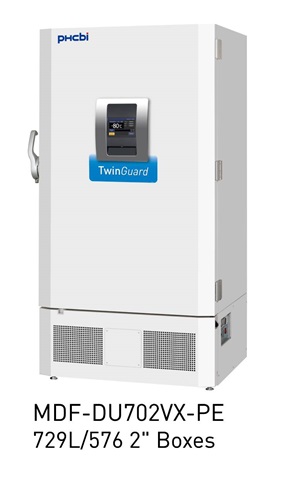
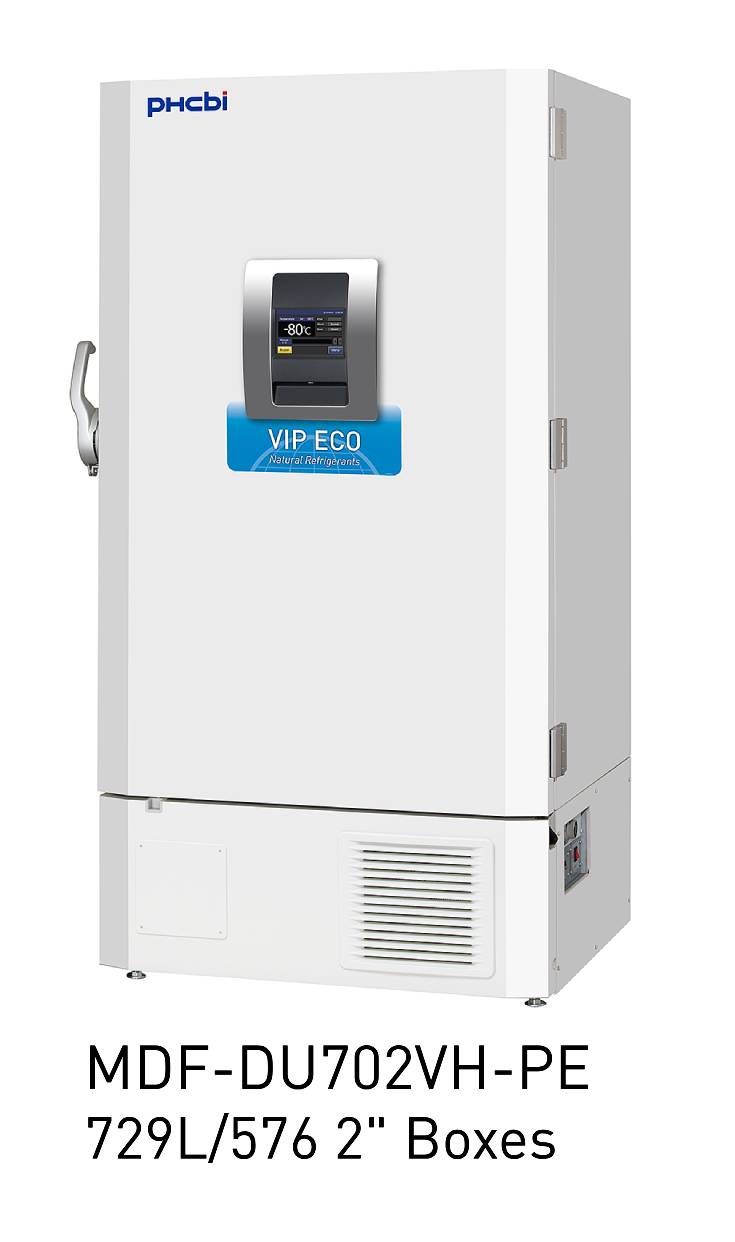
Go to all Preservation products